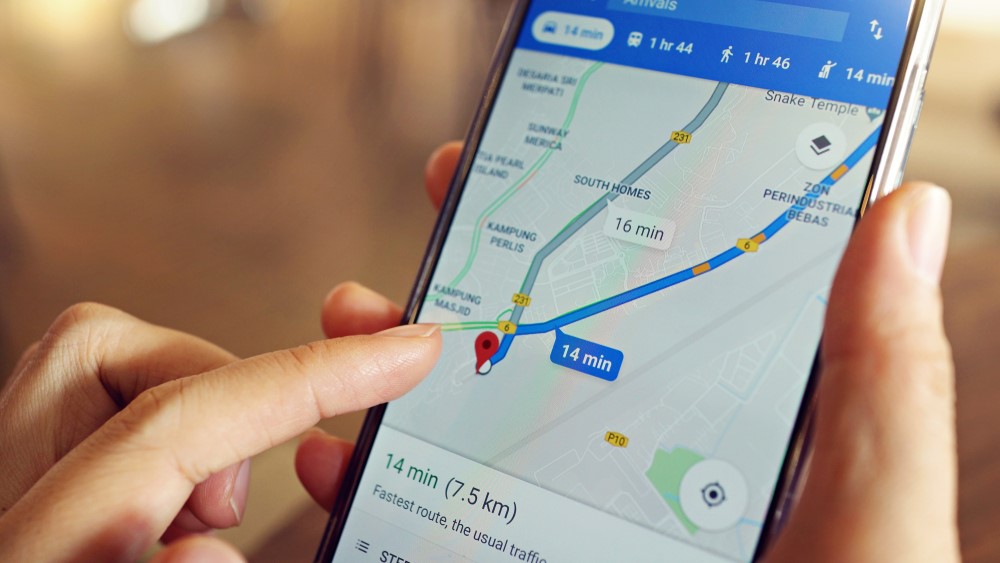Google Maps will soon delete your location history – unless you tell it not to
Timeline will now only track the past three months by default

Update (15/11): This report originally suggested Timeline data would be erased by the end of 2024, but Google has since clarified that users will have longer to back up their data.
A Google spokesperson said: "As we shared in our blog post, this update is rolling out gradually. This means people will see different deletion deadlines, approximately six months from when they were first notified about this change to their account."
We have updated the copy below to reflect this information, and recommend backing up Timeline data within six months of any relevant email messages from Google.
- Timeline, the journey and location tracking function of Google Maps, will soon switch to local storage
- Google will delete all Timeline data older than 3 months by default
- The official solution is deleting data for some users
Google is gearing up to implement changes to its location-tracking Maps feature that will see users’ previous location history erased unless quick action is taken.
As we previously reported, in December 2023 Google announced that location history gathered via the Timeline feature built into the Google Maps app would be moved from cloud storage to on-device storage by the end of 2024.
By default, this change will download the most recent three months of a user’s Timeline history to their device, erasing the rest forever.
Google confirmed to TechRadar that users will have approximately six months from the moment of notification until any data is deleted, with users informed via their Gmail account.
Get daily insight, inspiration and deals in your inbox
Sign up for breaking news, reviews, opinion, top tech deals, and more.
However, mixed reports have emerged that suggest an earlier deadline - Android Authority reports, some users have received emails instructing them to take action by November 19 to save their Timeline data.
What is Google Maps Timeline?
Google Maps Timeline is a feature built into Google Maps that allows users to track their location history as a line across the map. You can think of it as GPS in reverse, plotting a course of where the user has been.
The feature was first introduced in 2015 before making its way to iOS in 2017, meaning some users may have almost a decade’s worth of location history saved to the cloud.
Beyond the sentimental value of plotting your life's journey, Google can (with consent) use Timeline data to assess the effectiveness of advertising.
Google Maps Timeline currently syncs across devices over the internet, but it will effectively become device-specific with the upcoming changes.
How do I stop my Google Maps Timeline data from being deleted?

If you want to back up your Google Maps Timeline data, the email sent to users should contain a link allowing you to keep your data beyond the previous three months.
However, some users have reported that this link has wiped their location history entirely, so proceed with caution.
Luckily, you can save this data using something called a Google Takeout and circumvent Google’s email entirely. Head over to takeout.google.com, untick everything except Location History (Timeline), click Next step, and then Create export.
We will of course update this article if more information, or any fixes, regarding this potential bug come to light.
The impending change to Google Maps Timeline is the latest in Google’s slow move from free cloud services to either cloud-based subscriptions or on-device features.
Google Photos famously ended its free unlimited storage option in 2021, and Google subsidiary YouTube has either considered or committed to making features like video queueing and 4K playback exclusive to its Premium subscription.
Nevertheless, most users will simply want to save their data and move on – though we don’t have an estimate for how much storage space Timeline will take up yet.
For the latest updates as we hear them, be sure to keep up with our phones coverage.
You might also like

Jamie is a Mobile Computing Staff Writer for TechRadar, responsible for covering phones and tablets. He’s been tech-obsessed from a young age and has written for various news and culture publications. Jamie graduated from Goldsmiths, University of London in 2024 with a bachelor’s degree in Journalism. Since starting out as a music blogger in 2020, he’s worked on local news stories, finance trade magazines, and multimedia political features. He brings a love for digital journalism and consumer technology to TechRadar. Outside of the TechRadar office, Jamie can be found binge-watching tech reviews, DJing in local venues around London, or challenging friends to a game of Super Smash Bros. Ultimate.